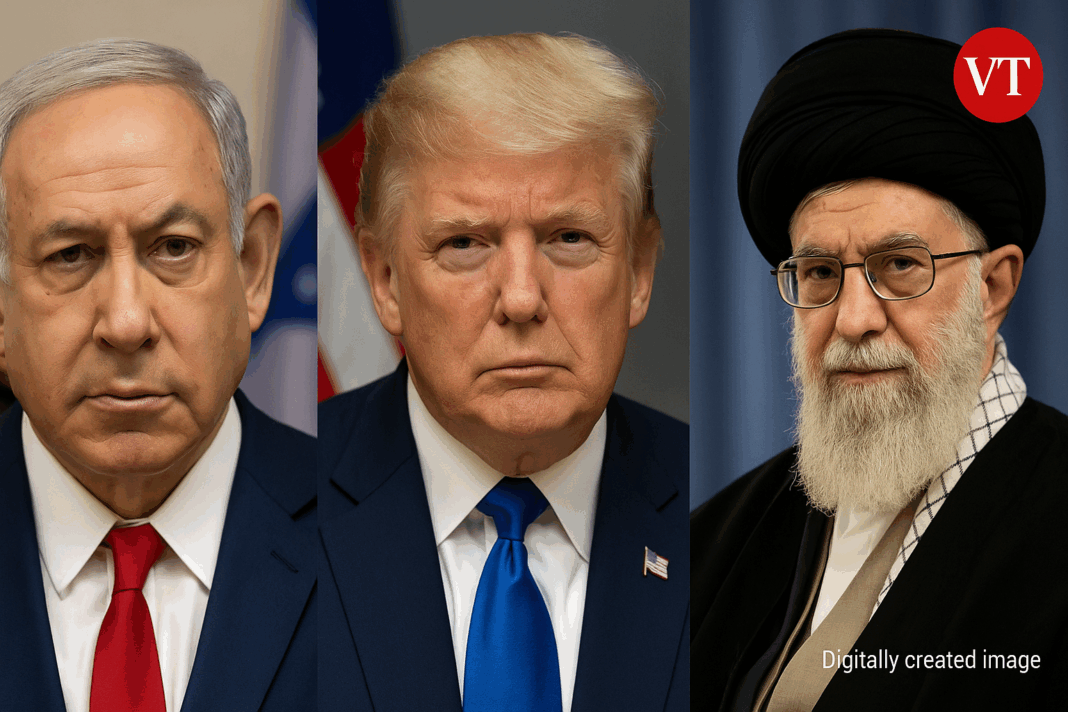- Hours after Trump declared a ceasefire, Iran and Israel exchanged missile fire.
- Israel accuses Iran of violating the ceasefire with two missile launches; Iran says strikes ended at 4 a.m. Tehran time.
- Iran denies any formal agreement and blames Israel for continued aggression.
- Israel’s top general vows retaliation, while Iran claims the right to defend itself.
- Trump’s announcement of a “Complete and Total Ceasefire” now faces international skepticism.
Missile Strikes Erupt Despite Trump’s Ceasefire Declaration
Just a day after U.S. President Donald Trump announced what he called a “Complete and Total Ceasefire” between Israel and Iran, tensions flared again Tuesday morning as both nations engaged in renewed military action, casting serious doubt on the viability of the ceasefire plan.
The Israeli military reported that two missiles were launched from Iran into northern Israel mid-morning. The missiles were intercepted, and air raid sirens prompted civilians to take shelter. “Two missiles were launched from Iran and they were intercepted,” a military official told AFP on condition of anonymity.
Following the attack, Israel’s top military commander issued a direct warning to Tehran.
— LTG Eyal Zamir, Chief of the General Staff, via IDF
Iran Denies Any Ceasefire Agreement
Iranian Foreign Minister Abbas Araghchi pushed back against the narrative of a mutual ceasefire agreement. In a public post on X, he emphasized that no formal deal had been reached and blamed Israel for initiating hostilities.
— Abbas Araghchi, Iranian Foreign Minister
In a follow-up post, Araghchi confirmed that Iranian military operations continued “until the very last minute, at 4 a.m.,” and thanked Iran’s armed forces for their readiness to defend the country.
Trump’s Ceasefire claim and conflicting statements
President Trump had announced the ceasefire Monday on Truth Social, describing it as a “fully agreed” deal between Israel and Iran. He credited Qatar’s leadership for securing the diplomatic breakthrough and praised both countries for ending what he called “THE 12 DAY WAR.”
However, conflicting accounts from Tehran and fresh missile strikes have cast immediate doubt on whether any agreement was accepted by both sides. While Trump emphasized peace and gratitude toward regional partners, neither Israeli nor Iranian officials publicly confirmed such a deal.
Mutual Blame, Rising Risk
The exchange of fire has escalated tensions and raised fears that the region may be sliding back toward full-scale conflict. Iran insists it was exercising its right to respond to Israeli attacks, while Israeli officials view Iran’s strikes as a direct breach of an already fragile truce.
With both sides now publicly disputing the existence or terms of a ceasefire, international observers are warning that the coming days could see further destabilization unless new diplomatic efforts take hold.
Read More:
- Tehran Rejects Trump’s Ceasefire Claim as “Lies”
- Trump Announces “Complete and Total Ceasefire” Between Israel and Iran
- Iran Attacks U.S. Base in Qatar, Trump Responds
(with inputs from agencies )
A global media for the latest news, entertainment, music fashion, and more.














